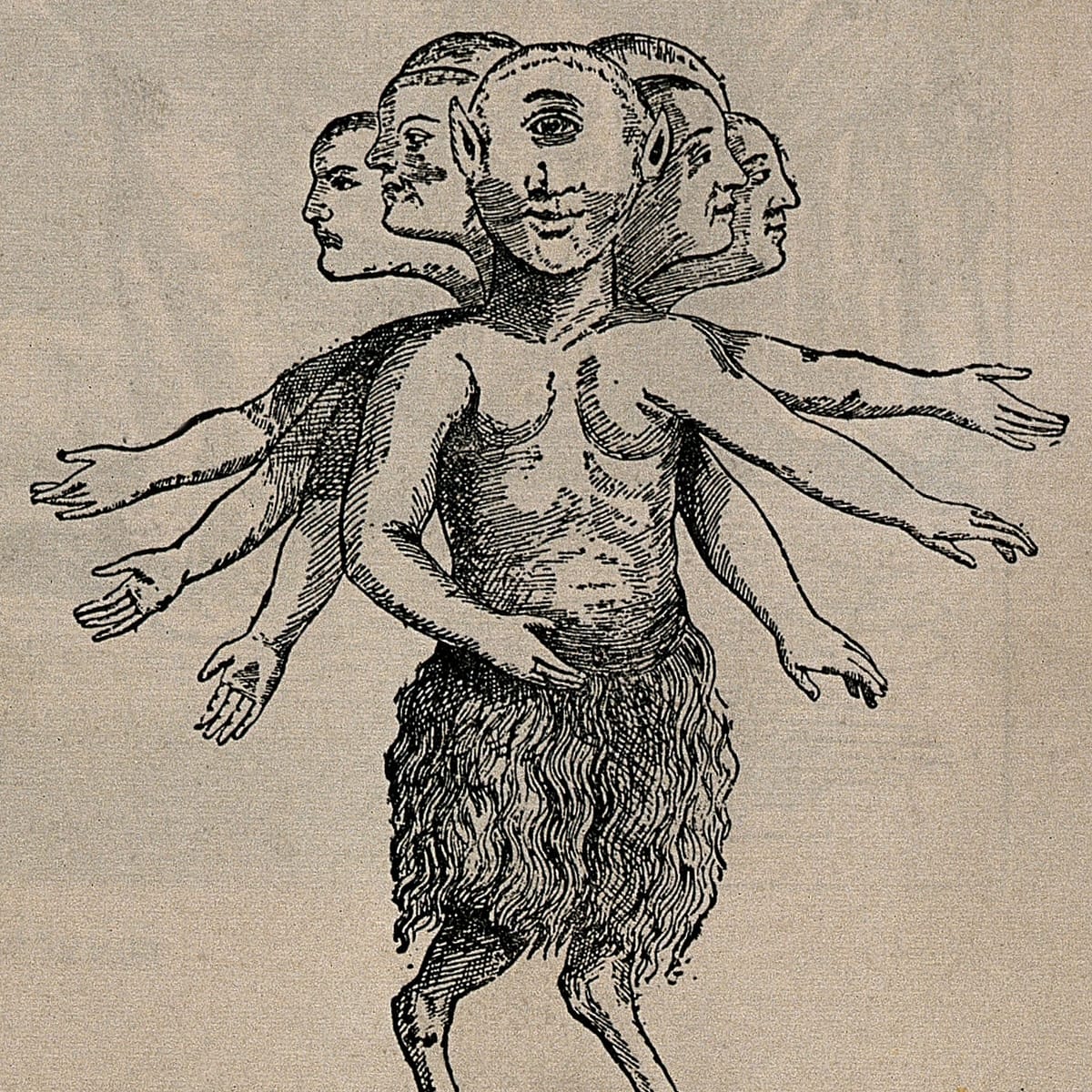Man as provider, man as destroyer
Succession, Breaking Bad, and the dual tyranny and utility of roles

I.
There are inconvenient things worth doing. There are dirty jobs that someone has to do.
In one scene of Succession, Tom Wambsgans is told in no uncertain terms that those who clean up messy problems, silently and without a fuss, are prized above all. He’s then ordered to make a business scandal get lost. In Breaking Bad, Gus impresses upon Walter that “a man provides for his family.”
What makes these characters compelling is the stain they leave when they answer this call. They go far beyond “do the messy thing for the greater good” and dive headlong into “make sure my family has infinite money no matter what happens to any number of other people.” There’s a straight, slick path between these. It’s not a leap over a crevasse. It’s a slope.
II.
Norms, roles, prescriptions, virtues — especially that relate to gender — these are the subjects of hairy, gnarly debate. They have long histories of scholarly commentary but their implications also appear in everyday life and relationships. Questions like “how much should men act as providers?” are touchy.
Some say “absolutely, 100%, next question.” Others vehemently deny the question’s relevance, usefulness, and premises; why single out men given the potential and contributions of women? Why not give people more agency in delegating such roles to themselves? These questions are valid; the original still can’t totally be avoided. Men exist, and people who want to provide good things for themselves and their communities exist, and these groups overlap.
III.
It’s practically evading the question, so criminally lazy and unoriginal it is, to pick an answer from a soup of old tropes, yet many do. They stick with the classics, believing men should know Car and Hunt while women should know about Child and Kitchen. “Men should deal with dirty things, women with everything else.” This ends up deceptive; it leaves women to deal with things that are at least as internally messy, then also make them look tidy and clean again.
There are those who would lazily lean back on this, a version of the 1950s with twice as much control over women’s bodies and half the corporate tax rate, trying to pass it off as strength. In reality such a system would eat and destroy itself. It is. People don’t take kindly to having their hard-won freedoms put back in the bottle. The question “how much should men be providers” and the long, fraught history of people grappling with questions tangential to it means it resists easy and lazy answers.
IV.
This will not be an exhortation to make women hunt and men clean. Not every person needs to be good at every job. I’m saying inject some control, some agency, into the situation, into our roles. Refrain from passively accepting tired puritanical frameworks about men and women just like the sheeple you claim to hate. People should have a say in choosing. If patterns along gender lines still emerge, fine; it will have come from people exercising freedom and not forced obedience to old dogma.
I’m invested in people having such choices not just for sanctimonious “here’s how society should work” reasons but for selfish ones, too. I want to protect and provide, as a human being, for other human beings I care about. Ironic how the most salient obstacles to me doing so lie in how certain other people choose to frame the “man as provider” thing.
V.
If I had a child who had a mental illness who had a crisis at school, and the police showed up, and my child was behaving in a way that made the police uncomfortable, how would I protect them? I couldn’t in the current state of things. The police would be practically immune to the consequences of anything they did, perhaps out of thinking it would make their gun-nut colleagues view them more positively. Others’ simplistic, one-dimensional versions of “providing” and “keeping people safe,” driven too much by individual ego, clash with more sane versions and make us all less safe. A falling tide sinks all boats.
The desire we have to be rid of COVID clashes with the desire of CEOs and right wing media pundits to make more money than God by fearmongering online about COVID’s solutions. A man in a gym looks at a girl; she thinks she’s taking a stand for women by posting about it, but it’s clear she’s given into some fearmongering too, as the video shows her worry in this case to be unwarranted. The comments on the video showing why she was right to be scared in the first place. Masculinity, capitalism, and the Internet all supercharge each other to make this problem worse. They tie together and enmesh the ways we think about “providing” and the ways we try to present ourselves to the world, to people who we hope will like us, to the gender(s) we’re interested in.
VI.
The author of Bookbear Express contends that we pay close attention, even if we don’t realize it, to attachment and detachment, and especially their interplay, in evaluating potential partners. We don’t like pathological amounts of either one. We don’t like it when people second-guess every decision nor when they physically can’t admit they’re wrong. Likewise, we work on how we present our combination of attachment and detachment to others.
You see it in teenagers figuring out what kind of people to be, right as they’re also maximally interested in figuring out the kind of people they want to pursue romantically. They’re dropped headfirst in the challenge of figuring out how to be the “right” amounts of attached and detached. They flail. They begin the lifelong journey of understanding the finer points of when you should let your passion for something show and when you should try to let something roll off of you.
VII.
Centrist or conservative men having a hard time in the dating pool should really consider that last paragraph, because it comes right back to what we’re talking about. In what way, and because of what motives, are you trying to “be a provider?” Try to understand how your answer to this question, if it comes from a rigid gender role followed for questionable reasons rather than a desire to actually provide, may remind many women of literal threats to their lives, certain pundits and politicians and podcasters, people fully unanchored from truth and turning their shtick up to an 11 for the views. These exaggerated online personalities have real effects on politics and lives.
A toxic mimic of healthy confidence, a viscerally unsettling caricature of it, regurgitating the late character arc of Walter White where he will go to any lengths — including ones that literally destroy the things he was trying to provide for in the first place — to try and show that he can provide. Who are you gonna “show,” bro? You made everyone leave.
VIII.
His entire brand is “I want to put women in cages and cosplay as a lumberjack.” He deems men the “providers” and “protectors” ordained by God, to the extent that he condemns any women who have the gall to try to be one, and who question a life of being livestock for men. Dumb moral absolutism. Vague notions of purity. The stench of an unhealthily clingy attachment to some “1950s in a funhouse mirror” fantasy. It’s sad to see guys get so attached to something that won’t come back.
It’s sad to see that and then watch their hyperattachment swing wildly back to an equally ugly form of detachment. Trolling, insincerity, waiting for a reaction to a bigoted comment before deciding if you really “mean” it. Calling the evils that happen under capitalism “Marxism.” Saying you’ve been “pushed right” by the silliest examples of left wing discourse, yet somehow never pushed left by a synagogue shooting or oil spill.
IX.
This alternation between extremes, careening between full attachment and full detachment, first cruel dogma and then smarminess, is a profoundly bad way to be, corrosive for any sapling of trust. It’s not bravery, strength, “provider” energy. It’s cowardice, hiding yourself from another, refusing to be who they need you to be, filling some random mold you’re already familiar with instead.
Real relationships between people don’t work that way. Ones that work involve accepting the challenge of walking the line between attachment and detachment, and with others. Vulnerability and boundary-setting. Sometimes openness and proactive honesty and asking for help, sometimes buckling down and dealing with your messy psychological shit.
X.
Providing can often involve dirty things you don’t want to do, making hard decisions, being hard on yourself and people around you, but how do you know when it’s too much? Well, note that the other direction isn’t necessarily true: many things that are hard to do aren’t necessarily good. Executing all the drug dealers won’t build airports. Pushing against a brick wall is hard but doesn’t create results or improve anything. Random cruelty, blindly slamming the throttle in some direction that someone on the Internet told you is masculine, is not the move. Be smart. Be hard on yourself and others in the right directions and at the right times.
That’s how you’ll gain and use useful knowledge about how tools and systems and people work. That’s how you’ll practice the courage to do hard and important things with sustained regularity. You don’t do provider-y things with the end goal of being perceived as more masculine; you start from the necessity of doing provider-y things, for yourself and others; if masculinity is something important to you, you trust that your efforts will pay off. You increase your control and understanding of attachment and detachment, in the process better understanding what you really want to be attached to and detached from. It will pay off. It will bring you closer to the kinds of feelings you want, the kind of world you want to create and inhabit.




